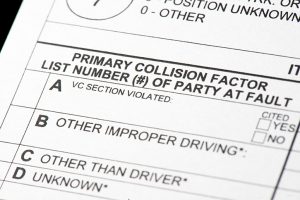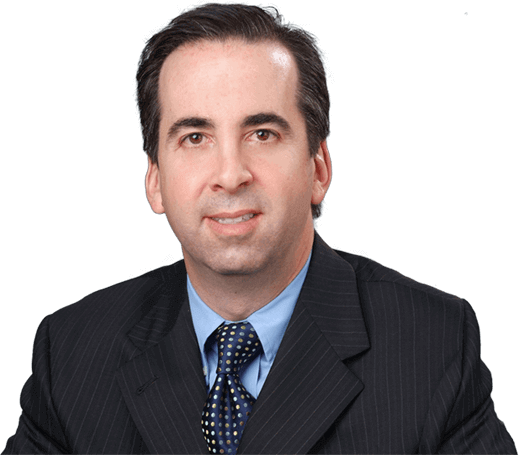What to Do After a Car Accident
Advice From an Experienced Accident Attorney
Have you been involved in a serious car accident caused by another driver? Are you unsure about what to do? Don't worry. We can help. That's why we created this step-by-step guide designed to help you make smart decisions after your car accident.
 Rockville, Maryland, car accident lawyer Stuart L. Plotnick gained this knowledge based on years of experience handling some of the toughest accident cases in the area. He knows how the legal system works and how to get results. That's why you should trust the Law Offices of Stuart L. Plotnick, LLC to handle your car accident claim.
Rockville, Maryland, car accident lawyer Stuart L. Plotnick gained this knowledge based on years of experience handling some of the toughest accident cases in the area. He knows how the legal system works and how to get results. That's why you should trust the Law Offices of Stuart L. Plotnick, LLC to handle your car accident claim.
The choices you make after your accident can affect you for the rest of your life. If you agree to a settlement offer that does not fully cover the cost of your accident, you could end up having to pay for your accident out of your own pocket - even though you did nothing wrong. That's why we want to meet with you. Contact us and schedule your free case evaluation right now.
Steps You Should Take After Your Car Accident
- The first thing you should always do after a car accident is call 911 if appropriate. Everyone at the scene of the accident should be evaluated by a medical professional - even if no one seems to be seriously hurt. Your medical health is the priority. Some injuries, such as brain injury and whiplash, may not show symptoms until days or even weeks after the car accident.
- Call the police - Generally, the police will come only if the accident is serious enough or the vehicles are impeding traffic, but it never hurts to call. The police can be a strong tool in the investigative process, determining how the accident happened and who was at fault. Take down the name and badge number of the police officer who is present at the scene and find out whether they are going to make a report.
- Gather key information - Make sure you get the following information from the driver of the vehicle that crashed into your car. Get the driver's:
- Full name
- Address
- Phone number
- Driver's license number
- Insurance provider
- Insurance policy number
But remember to keep your comments brief. Stick to the facts of what happened and don't say anything that could be construed as admitting fault for the accident, even if you may think you are at fault.
- Talk to witnesses - If someone saw something, make sure to get their full name, address and phone number. That way, you or the police officer investigating your accident can contact them later if necessary. Witness testimonies can make a big difference in the outcome of a case.
- Talk to the police - Ask for a copy of the police report, and take down the name and badge number of the police officer who responds to the accident.
- Take photographs - If you can take photos, they are a must do. Pictures of your accident are some of the most powerful tools in your effort to obtain full compensation for your crash. They can show the violence of the impact, the location of the vehicles, and in some cases, the injuries caused to you or your loved ones. It's especially important to take these photos before both vehicles are moved. This includes:
- Damage to vehicles
- Skid marks on road
- Debris on road
- Your visible injuries
- Get medical attention - Even if you feel fine, have a doctor examine you. You could have a serious injury and not even realize it. Don't take chances with your health. A simple visit to the doctor is worth it, even if you feel okay.
- Call your insurance company - Tell your insurance company you have been in a car accident. But keep your comments to a minimum. What you say could be used against you later to deny or reduce your claim.
- Write down details - As soon as you can, write down as many details as you can remember about the accident. The longer you wait to do this, the fewer details you are likely to remember.
- Follow your doctor's instructions for treatment and therapy appointments. Do not miss appointments.
- Time missed from work - If you miss time from work, please get a disability slip from your doctor.
- Keep a diary - Maintain a diary of how you are feeling, making sure to note your aches, pains, limitations on your ability to do any daily activities, and of the medications you are taking and how often.
- Contact us - Our law firm can help you every step of the way. From negotiating with insurance companies on your behalf to filing a lawsuit if necessary, we're here for you when you need us most.
What NOT to Do After a Car Accident
There are a few things you should avoid doing in order to protect yourself legally after an accident:
- Don't discuss the accident - Only speak about the accident with the police officer and your doctors. Do not discuss it with insurance company representatives or the lawyers of the other driver even if you are in the right.
- Don't sign anything - Do not sign any document that is presented to you at the scene of the accident or right after unless it is necessary for medical treatment. Make sure the police report is accurate before you sign it, if asked.
- Don't accept a settlement right away - Do not accept a "settlement check" or any kind of settlement that is initially offered to you by an insurance company until you have consulted with your doctor and with an experienced car accident attorney. The only aspect of your claim that should ever be resolved early on may be for the damage or loss of your car due to the accident; that is it.
If you have further questions about car accidents, please contact the Law Offices of Stuart L. Plotnick, LLC today to schedule a free case evaluation with our experienced car accident lawyer. We represent injured car accident victims throughout Maryland, Virginia, and Washington D.C.
Defensive Driving - How to Avoid A Car Accident
Driving defensively can save you and your family from becoming a statistic. Not every accident is avoidable, but when you pay close attention to the roadway and your surroundings, you may be able to avoid a collision and serious personal injury.
Defensive driving is more than careful driving. It requires that you anticipate and plan for what could happen next on the roadway, and it certainly requires that you do not engage in behaviors that will take your primary focus off the other drivers and road conditions around you. Try these defensive driving techniques to keep yourself safer on the road:
- Be constantly aware of the space around you so that you can keep an escape route in mind in case of an emergency.
- Stay a safe distance from the cars and other vehicles around you.
- Watch out for motorcyclists that may move through traffic more quickly than you.
- Do not linger in trucker's blind spots.
- Look every direction to check for moving vehicles when you are crossing or turning at an intersection.
- Exercise caution when you have limited sight distance, such as approaching a curve or nearing the top of a hill.
- Slow down for erratic or aggressive drivers.
- Be cautious of drivers in rental cars or with out-of-state plates who are likely unfamiliar with the area and may be distracted by a navigation device. This is especially important in areas of high tourist traffic, like Washington DC, Maryland, and Virginia.
- Keep your distance behind trucks with cargo that may spill into the road or fly at your windshield.
- Obey posted speed limits and drive with extra caution in parking lots and school zones.
- Be aware of slippery conditions, such as rain or snow, and how they can affect your stopping distance.
- Don't be looking at your cellphone for maps, texting, or emailing.
You can find defensive driving courses in almost every state. Many times, these courses are mandatory following a traffic ticket or involvement in a car accident, but they can be very useful for any driver to learn good defensive driving techniques.

